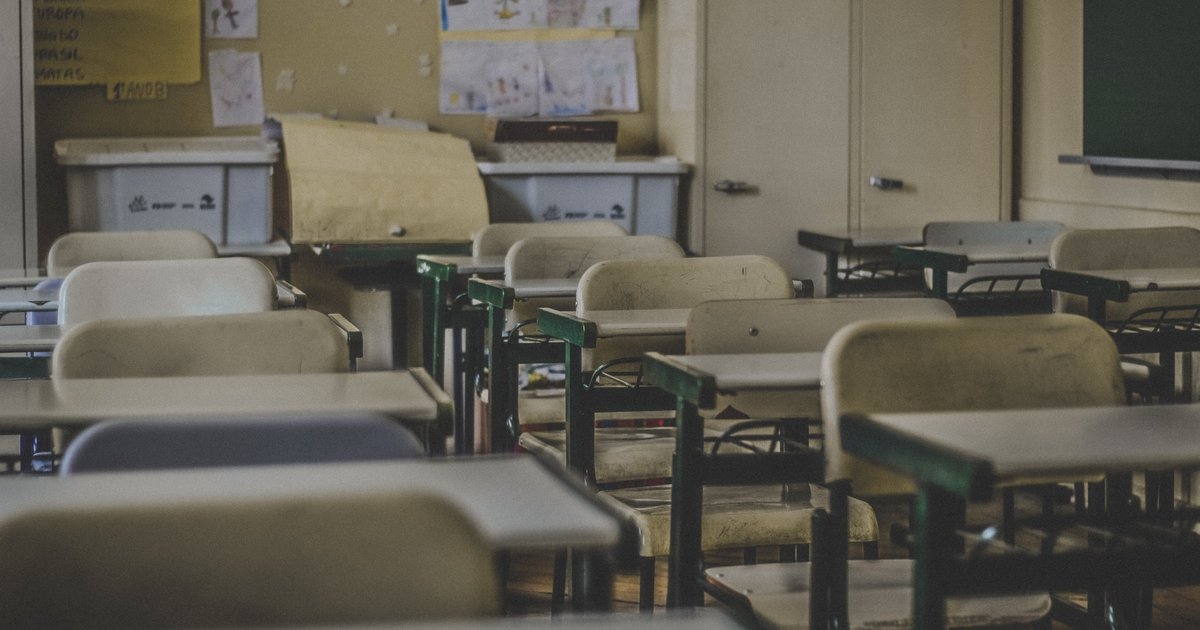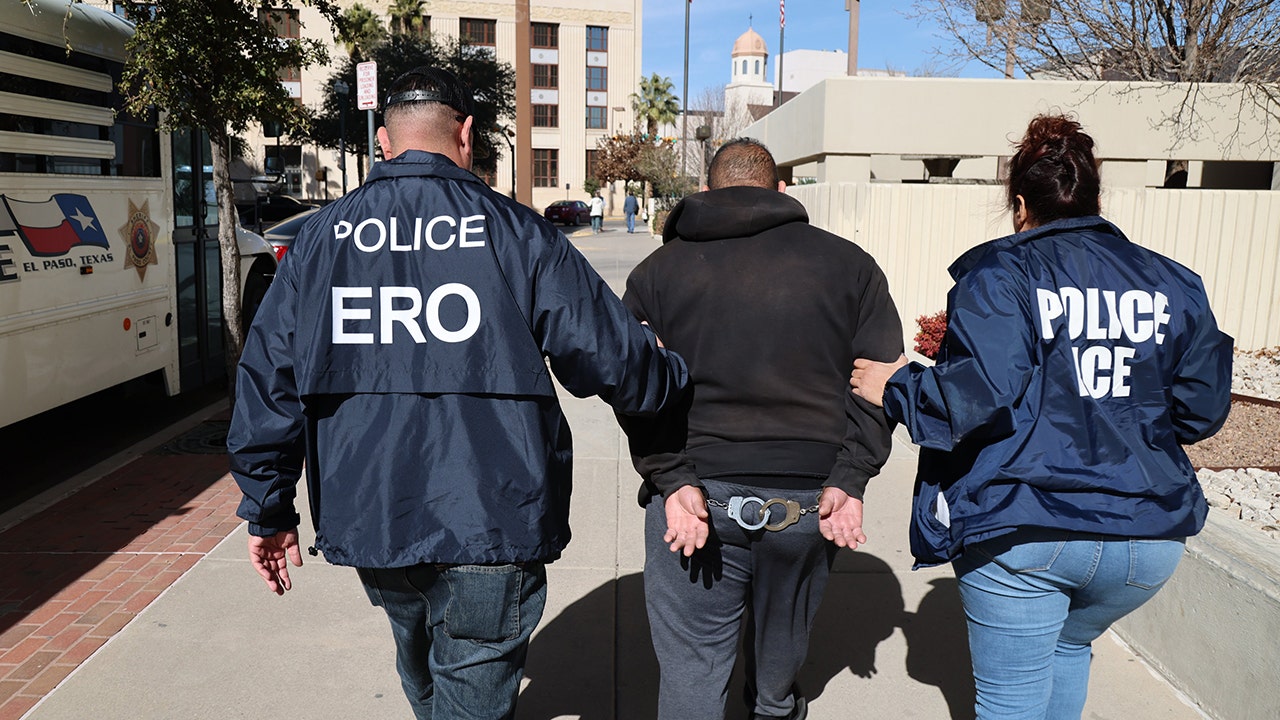Pennsylvania
How Pa. taxpayers fund charter schools should be fixed, public education advocates say

In the Greater Johnstown School District, where nearly all of the students come from low-income families, very few arrive prepared for their first day of kindergarten, Superintendent Amy Arcurio said.
About 90% of the district’s kindergarten and first-grade students require some level of early intervention to put them on track for academic success, Arcurio told the Capital-Star in a recent interview.
But with only two reading specialists for 1,200 elementary students, they inevitably fall behind.
MORE: Teachers and parents’ worries mount over crumbling Philly school buildings, asbestos, gun violence and more
“The long-term impact on our students is that they can’t access the curriculum,” she said, noting that many still lack basic proficiency by third grade, when they should be reading to learn instead of learning to read.
Greater Johnstown, which serves the once-thriving steel town at its center and four surrounding communities in Cambria County, was one of six low-income school districts that sued the state over the way it pays for public education.
In February, they won the historic Commonwealth Court decision that said Pennsylvania’s school funding system, which relies heavily on local property taxes, deprives children in low-income communities of educational opportunities.
“We, as superintendents across the commonwealth, shouldn’t have to make those very awful decisions about who are the kids that get the resources this year,” Arcurio testified in a trial last year.
The Johnstown district also is one of 466 out of the state’s 500 school districts where the school board has passed a resolution calling on the General Assembly to change the way charter school tuition is calculated.
In the 2021-22 school year, Pennsylvania school districts paid a total of nearly $2.7 billion in tuition to charter schools. More than $1 billion of that was to the state’s 14 cyber-charter schools, where students learn from an exclusively online curriculum, according to data from the Pennsylvania Department of Education.
Those advocating for change say it’s a massive overpayment that deprives students in traditional public schools of resources and increases the strain on taxpayers, particularly in low-income communities such as Johnstown.
Former Gov. Tom Wolf’s office put the excess at nearly $400 million when he joined lawmakers in 2021 to announce a plan to improve the quality of charter schools and rein in costs.
“Pennsylvania taxpayers have been overpaying for charter school tuition for over 25 years and it’s time for the legislature to fix it,” Larry Feinberg, director of the Keystone Center for Charter Change at the Pennsylvania School Boards Association, said.
With the General Assembly then controlled by the GOP, Wolf’s charter reform plan went nowhere. But with Democrats now in control of the state House, a fresh crop of reform bills has emerged.
Proponents of charter school reform stress that they’re not opposed to the choice of educational opportunities that charter schools provide.
“We are not looking to close any well-performing charter schools because there are some very good ones out there,” said state Rep. Joe Ciresi, D-Montgomery, who has proposed legislation to give school boards oversight of charter schools, and to change the way cyber-charter schools are funded by setting a statewide tuition rate.
But the lack of accountability for academic performance and the flawed funding scheme represent broken promises to students and taxpayers, Rep. Tarah Probst, D-Monroe, said, adding the windfall charter schools receive sometimes gives rise to waste and outright fraud.
Probst is the prime sponsor of three charter school reform bills, including one that would subject cyber-charters to state audits to ensure they are spending public money responsibly. Probst said she questions spending by cyber-charter schools, including millions of dollars for advertising.
“You should never have to advertise public education,” Probst said. “Can you imagine if your local school district said we need to pass a $3 million media buy to advertise our schools? People would be outraged.”
Anne Clark, chief executive officer of the Pennsylvania Coalition of Public Charter Schools,which advocates for the publicly funded, but privately run, institutions, said charter schools provide a good value for taxpayers and opportunities for families who may not be getting what they need in their traditional public schools.
“What they are able to offer is incomparable,” Clark said, noting that many students choose charters because they offer instruction in languages not taught in their home districts and other specialized art, science and technology courses.
Brian Hayden, president of the PA Cyber Charter School, one of the state’s first and largest cyber-charter schools, said the tuition districts pay belongs to the students and their families, not school district officials.
“Our families pay property taxes too, and if they believe that their student is not getting a quality education they have a right – and I would say even a responsibility – to find other options,” Hayden said.
Hayden said he opposes a statewide charter school tuition rate because some families who choose charter schools would see a significant portion of their taxes left behind with the home school district.
Clark said she believes that equal funding for every student no matter where they live or what public school they attend would take the animosity out of the discussion about charter school funding. But she rejects the argument that charter schools hurt traditional public schools.
“I don’t agree that charter schools take the schools’ money, it’s the taxpayers’ money,” Clark said.
Like Arcurio, educators across Pennsylvania say their students have needs that could be met if the tuition their districts paid to charter schools was commensurate with the actual costs of the education they provide.
“I could make the decision that the budget can support another full-time reading specialist or two or 15,” Arcurio said.
“In a deep-poverty school district like Greater Johnstown we can’t ask the locals to take on more of the share of the cost,” Arcurio said.
Jane Hospador, a first-grade teacher for 25 years at Pottstown School District’s Franklin Elementary School, said every student in the district would benefit from more music, arts, language and technology instruction.
But in the first classes of young elementary students to start school after the pandemic, counselors have been in high demand, even for simple things like helping children learn how to play and interact with others, Hospador said. Each of the district’s three elementary schools has one counselor.
“Being able to call for a school counselor and knowing that person will show up, it’s priceless,” she said. “We do have kids who are in crisis and are unable to tell you why.”
A system ‘out of whack’
Pennsylvania’s law allowing publicly-funded charter schools was passed in 1997, aiming to provide broader educational opportunities for students and laboratories where the use of innovative teaching methods would be encouraged.
The law was amended in 2002 to authorize cyber-charter schools. Since then, the number of charter schools has swelled to 165 brick-and-mortar schools, largely clustered around the state’s larger cities, and 14 cyber-charters that accept students from throughout Pennsylvania. They educate about one-tenth of the state’s 1.7 million public school students.
Despite the growth, there have been no substantial changes to the law despite a record that includes poor performance, failures and scandals.
Charter schools receive about 88% of their funding from the school districts from which they draw students, according to the Pennsylvania School Boards Association.
Because every school district in Pennsylvania establishes its own budget and per-pupil spending rate, a single charter school can receive a broad range of tuition payments from each school district where it draws students.
Tuition rates for regular education charter school students ranged from $7,992 to $25,150 in the 2022-23 school year, according to state Education Department data.
School districts are permitted to deduct the cost of services such as transportation, facilities costs, debt payments and certain state and federal grants.
The Coalition of Public Charter Schools said those deductions are cost savings for school districts, but charter reform advocates say many of those expenses remain as “stranded costs” that districts must still pay for.
The result, said ML Wernecke, director of the PA Charter Performance Center, a project of Children First PA that produces data to guide charter school policymaking, is that tuition has no relation to the charter school’s actual cost of delivering an education.
The disconnect becomes more pronounced when it comes to tuition that districts pay to cyber-charter schools, Wernecke said.
“Consistently, studies show that to do an online education … it’s 25% to 30% less than to do an in-person education,” she said.
School districts pay a separate rate to charter schools for special education students, but rather than basing the payment on individual students’ needs, as the state does to calculate special education funding, it is an average of a school district’s special education costs.
To calculate the rate, under state law, a district must take its total expenditure for special education and divide the amount by 16% of the student body, which is assumed to be the proportion of students who require special education services across Pennsylvania.
According to the state school boards association, the number of special education students across the state exceeded 18% in 2020-21.
Special education tuition rates for charter school students ranged from $18,599 to $57,371 in the 2021-22 school year, according to Education Department data. The top tuition for special education in 2022-23 was $60,166.
Pottstown School District Superintendent Stephen Rodriguez said those amounts can be skewed by a few students with highly intensive special education needs, exceeding $200,000.
Pottstown pays around $33,383 — about $3,000 more than the state average — for each special education student attending a charter school, state data shows.
That creates an incentive for charter schools to enroll special education students with less expensive needs, the school boards association says. Hayden, of PA Cyber, said he objects to the suggestion that charter schools “cherry pick” students, noting that charters are required to accept any student who seeks to enroll.
Although a greater percentage of charter school students – about 20% – require special education services than traditional public schools, about 61% fall into the lowest category of needs, compared with about 55% in traditional public schools, according to the school boards association.
Changing the formula for special education tuition to charters would save Pottstown $300,000 a year, Rodriguez said. Statewide, school districts paid charter schools about $185 million more than charters reported spending on special education, according to the school boards association, citing state data.
Wernecke, of the Charter Performance Center, said the growth of cyber charter schools’ surpluses is one result of the overpayments they receive.
“If cyber charters are amassing surpluses … it’s a sign that the funding system is out of whack,” Wernecke said.
Clark, of the Coalition of Public Charter Schools, said there are many reasons for charter schools to carry surpluses, but the most important is to weather budget impasses, such as the six-month budget showdown in 2015 at the start of Wolf’s first term as governor.
Since the 2018-19 school year, cyber-charters’ unassigned fund balances have skyrocketed from $22 million to $250 million in 2021-22, according to education department data.
Although cyber charter schools saw a 63% spike in enrollment during the pandemic, their surpluses grew more than tenfold, the Charter Performance Center noted in a 2022 report.
Brick-and-mortar and cyber-charter schools together have surpluses totaling $591 million, which is nearly a quarter of the surpluses held by school districts, according to state Education Department data.
“When it’s year-after-year, it’s harder to say this is an anomaly,” Wernecke said.
Greater oversight needed
With the GOP in control of the state House for the previous six sessions and in control of the state Senate for even longer, reform bills such as those proposed by Ciresi and Probst have been non-starters.
Susan Spicka, executive director of the advocacy group Education Voters of PA, said deep-pocketed charter school supporters have an outsized influence in Pennsylvania politics.
Billionaire professional gambler turned stock trader Jeff Yass; Vahan Gureghian, the owner of a for-profit charter school management company; and developer Michael Karp, who is chairman of the Belmont Charter Network in Philadelphia, have been prolific donors to pro-charter school candidates..
But with a one-vote Democratic majority in the House, legislation such as Probst’s bill requiring state audits for cyber-charters has the best chance in more than a decade.
Spicka said the case for greater oversight is supported by charter schools’ consistently scoring lower than traditional school districts on measures of academic performance and by the fact that there are no restrictions on how charters can spend money not used for educational purposes.
Probst’s bill follows state Auditor General Tim DeFoor’s decision to close his office’s Bureau of School Audits and subsequent refusal to resume scrutiny of cyber-charters.
Education Voters published the results of Right-to-Know requests for advertising, marketing and promotions showing that 10 cyber-charter schools that responded spent nearly $17 million on advertising. Nearly half of that amount was spent by a single school, Commonwealth Charter Academy, whose CEO, Thomas Longnecker, did not respond to requests for comment.
Another records request revealed that CCA spent more than $75,000 on catering, concessions, parking and tickets for students and their families to attend Philadelphia Phillies baseball games. The state’s largest charter school, with more than 18,000 students, also spent $60,000 for a sponsorship deal with the Scranton/Wilkes-Barre Penguins — plus more than $6,000 for tickets.
Education Voters is also pursuing a Right-to-Know appeal in Dauphin County Court to compel CCA to release records of its reimbursements to families for students’ extracurricular activities.
Hayden, of PA Cyber, said state measures of academic performance often don’t take into account the realities of cyber charter schools. His school’s 57% graduation rate is influenced by the fact that many students are already behind when they enroll.
Among students who enroll at PA Cyber in their third or fourth year of high school, a majority have half or fewer of the credits they need to graduate. The graduation rate among students who have been at PA Cyber for five years or longer is 97%, according to PA Cyber’s own analysis.
Hayden added that while advertising is explicitly permitted under the charter school law, the majority of new students’ families say they were referred by friends or family.
“Nobody is coming to a PA Cyber because they see a 30-second commercial,” Hayden said. What the commercial does is make them aware that there is an alternative.”
Charter schools are also required to undergo annual independent audits and submit reports to the state education department, he said.
“If a charter school is not doing those things they should be audited,” Hayden said. “It’s part of a narrative that (reform advocates are) trying to create that we’re in the wild wild west here.”
Recently Pennsylvania Capital-Star is publishing a series of articles about how state policymakers have been challenged to fix Pennsylvania’s broken school funding system. From Pittsburgh to Philadelphia, school districts have been trying to make the best of it. Now they’re looking to a future where all 500 of the commonwealth’s school districts have what they need to ensure a quality education for every student.
Pennsylvania Capital-Star is part of States Newsroom, a network of news bureaus supported by grants and a coalition of donors as a 501c(3) public charity. Pennsylvania Capital-Star maintains editorial independence. Contact Editor John Micek for questions: info@penncapital-star.com. Follow Pennsylvania Capital-Star on Facebook and Twitter.

Pennsylvania
Pennsylvania Game Commission asking public to report any turkey flocks they see across state

The Pennsylvania Game Commission is asking for the public to report any turkey flocks they see across the state.
The information is being collected through March 15 to help the Game Commission trap them for ongoing projects.
You are asked to provide the date of the sighting, the location and the type of land (public, private or unknown) where the birds were seen. The Game Commission will then assess these sites to potentially trap the bird. Leg bands will be put on the male turkeys and then released back. In four Wildlife Management Units – WMUs 2D, 3D, 4D and 5C – female turkeys, hens, also will be leg banded and about 130 hens also will be outfitted with GPS transmitters, then be released back on site, to be monitored over time.
Trapping turkeys during winter is part of the Game Commission’s ongoing population monitoring, and provides information for large-scale turkey studies, as well.
Hunters who harvest these marked turkeys, or people who find one dead, are asked to report the band number and/or transmitter, either by calling toll-free or reporting it online.
“The data give us information on annual survival rates and annual spring harvest rates for our population model, and provides the person reporting the information on when and approximately where the turkey was banded,” said Mary Jo Casalena, the Game Commission’s turkey biologist. “In the four WMUs where hens are getting the GPS transmitters, we’re studying turkey population and movement dynamics, disease prevalence, and other aspects that may limit populations.”
The studies are being done in partnership with Penn State University and the University of Pennsylvania’s Wildlife Futures Program.
“The public was so helpful the last few years and some even helped with monitoring sites and trapping,” Casalena said. “We look forward to continuing this winter.”
This field study will conclude at the end of December 2025.
Download the FREE WPXI News app for breaking news alerts.
Follow Channel 11 News on Facebook and Twitter. | Watch WPXI NOW
Pennsylvania
DEP urges all Pennsylvanians to test their homes for radon this January

PITTSBURGH (KDKA) – There’s a new alert to all Pennsylvanians about radon testing still being crucial in homes, schools, and businesses to protect your health.
A state radon expert is shining a light on why people should take “National Radon Action Month” seriously, no matter where they live in the state.
We’re deep in the coldest days of the year; Homes are closed up and the heat is cranked up. It’s the best time to check your home for radon.
“Pennsylvania is probably the most radon-prone state in the country…We have results at least 25 times the EPA guideline of every county and some much more than others,” said Bob Lewis, the radon program manager for the Pennsylvania Department of Environmental Protection’s Bureau of Radiation Protection.
According to the American Lung Association, about 40 percent of Pennsylvania homes are believed to have radon levels, specifically above the EPA action level of 4 picocuries per liter (PCI/L).
Lewis said the naturally occurring radioactive gas can get into your home from the ground.
“It’s easily able to move from the soil and the rocks below the foundation, into the foundation,” he said.
You can’t smell, taste, see, or feel radon.
“Out of sight, out of mind, we can’t see it,” said Lewis.
He said breathing high levels of radon into your lungs can lead to serious health problems.
“So, we’re breathing this radioactive gas into our lungs and that’s where it’s deposited and that’s where it can do potential damage. These radioactive particles basically get lodged on the epithelial lining of your lung, the surface of the lung, mostly in the upper tracheobronchial areas. And over long-term exposure, they can increase one’s risk of getting lung cancer,” Lewis said.
According to the EPA, radon is responsible for an estimated 21,000 lung cancer deaths every year in the U.S., and radon is the second leading cause of lung cancer behind smoking.
Lewis said the first step to protect yourself and your family from the dangers is to buy an easy-to-use test kit at a hardware store or online. Then test your home and send the sample to a PA-certified lab. You can also hire a state-certified testing company.
“Get your test in the basement, and turn it back to the lab. You’ll get some test results after a week and a half or so,” he said.
If your test results are high, take action to reduce the levels in your home. You’ll need a certified radon mitigation contractor to install a radon reduction system.
“It’s an active system that uses some PVC pipe in the basement and it draws the air from underneath the basement floor to the outside and then dumps at the roof line. So basically, you have a vacuum cleaner underneath your house. Those systems work very well. They’re relatively low maintenance, about $1,000, generally speaking, for a system to be installed,” Lewis said.
The last step is to remember to monitor your mitigation system. According to the DEP, you should periodically check if the fan is running by looking at the U-tube manometer on the PVC piping of your system. The fluid levels on each side of the glass tube should be uneven.
Lewis said you should also do a radon test in the winter once every two years to make sure the mitigation system is still working properly.
While you have to pay for the system out of your own pocket, Lewis said taking radon dangers seriously is worth it in the end.
“It’s obviously a health benefit for you and your family. And it’s also a benefit when once you go then you go to sell the house too, at least if you’ve taken care of it,” he said.
You might not think about the dangers if you don’t own a house, but it’s recommended radon testing be done in rental homes, schools, and businesses too.
“We encourage, besides home, private homes, schools, and businesses to test as well. We’ve Been working with the Department of Education for quite a few years trying to get all the school districts to test,” Lewis said.
Call the DEP the Radon Hotline at 800-237-2366 for help with understanding test results and what action to take after getting back high results.
A list of state-certified radon contractors, labs, and testers is also available on DEP’s website.
The Allegheny County Health Department is providing more than 900 free radon test kits for residents. Pick up a test M-F between 8 AM and 4 PM at the Housing and Community Environment office (3190 Sassafras Way, Pittsburgh, PA 15201). One kit per household while supplies last so call ahead at 412-350-4046.
The American Lung Association is also offering free radon test kits. You can order them online.
Pennsylvania
Suspect in killing of woman in Pa. motel in custody in N.J., cops say

A suspect in the homicide of a woman in Bensalem, Pennsylvania is in custody at the Trenton Police Department, police said Wednesday afternoon.
The suspect and victim’s identities have not been made public.
The Bensalem, Pennsylvania police and the Buck County District Attorney’s Office said in a statement that officers found a woman dead at the Sleep Inn & Suites, on Street Road, early Wednesday. They did not detail the circumstances of her death.
-
/cdn.vox-cdn.com/uploads/chorus_asset/file/25822586/STK169_ZUCKERBERG_MAGA_STKS491_CVIRGINIA_A.jpg)
/cdn.vox-cdn.com/uploads/chorus_asset/file/25822586/STK169_ZUCKERBERG_MAGA_STKS491_CVIRGINIA_A.jpg) Technology1 week ago
Technology1 week agoMeta is highlighting a splintering global approach to online speech
-

 Science5 days ago
Science5 days agoMetro will offer free rides in L.A. through Sunday due to fires
-
/cdn.vox-cdn.com/uploads/chorus_asset/file/25821992/videoframe_720397.png)
/cdn.vox-cdn.com/uploads/chorus_asset/file/25821992/videoframe_720397.png) Technology1 week ago
Technology1 week agoLas Vegas police release ChatGPT logs from the suspect in the Cybertruck explosion
-

 Movie Reviews1 week ago
Movie Reviews1 week ago‘How to Make Millions Before Grandma Dies’ Review: Thai Oscar Entry Is a Disarmingly Sentimental Tear-Jerker
-

 Health1 week ago
Health1 week agoMichael J. Fox honored with Presidential Medal of Freedom for Parkinson’s research efforts
-

 Movie Reviews1 week ago
Movie Reviews1 week agoMovie Review: Millennials try to buy-in or opt-out of the “American Meltdown”
-

 News1 week ago
News1 week agoPhotos: Pacific Palisades Wildfire Engulfs Homes in an L.A. Neighborhood
-

 Business1 week ago
Business1 week agoMeta Drops Rules Protecting LGBTQ Community as Part of Content Moderation Overhaul








/cdn.vox-cdn.com/uploads/chorus_asset/file/25626687/DSC08433.jpg)










